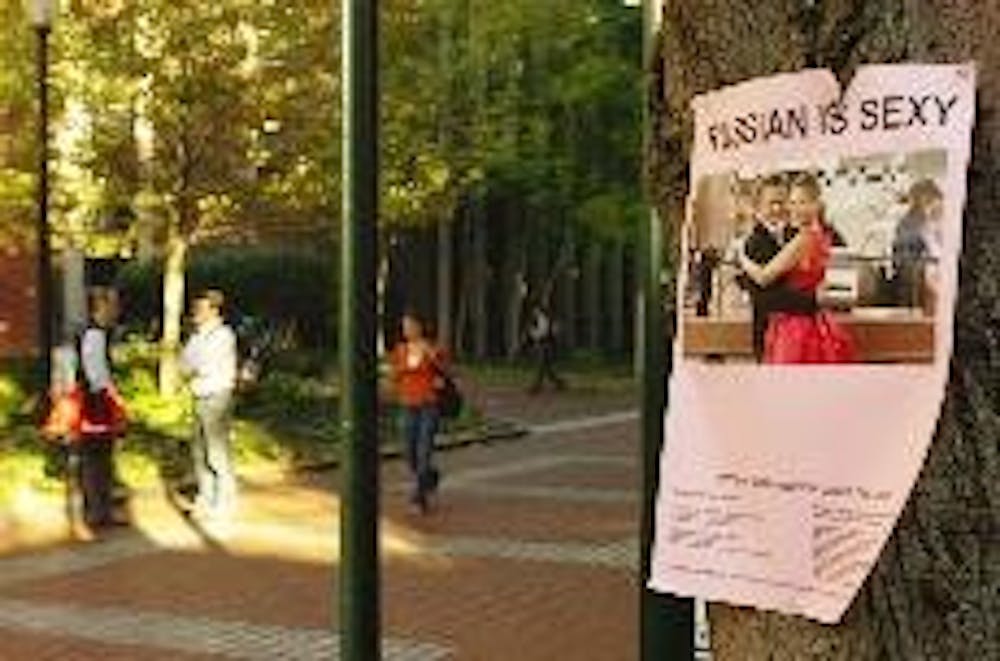
'Sex, Suicide, Socialism, Sin:" these are the words on a pink poster near the Le Petit Creperie in Houston Hall promoting an "Intermediate Swedish" class offered next semester.
"Night classes fit into your schedule, and there is no class on Friday," proclaims a poster advertising Dutch 102 in Houston Hall. "Dutch is fun and easy to learn, it's practically the twin language of English."
Other signs shout out, "Russian is Sexy," stapled to trees around campus.
But they weren't put up by a student group or some activist organization - they were designed and distributed by the Department of Slavic Languages and Literatures to drum up interest about its course offerings.
These provocative posters are just one way that the more than 50 different majors in the College of Arts and Sciences advertise their presence and attempt to attract students - and reap the benefits that come with offering popular courses.
There is no school-wide minimum size for courses, according to Kent Peterman, the School of Arts and Sciences' director of academic affairs. But if a department can't fill the seats in its classes, it might run into trouble.
"If a department has nothing but small classes, that might be noticed, and the next time they want to ask for a new faculty hire, the deans may look at that and say why," Peterman said.
So professors advertise - and they advertise creatively.
Last week's course and majors fair gave students an opportunity to talk to professors and students majoring in specific disciplines, Peterman said.
But organizers knew the true key to students' hearts and course schedules: food. Attendees got to munch on free pizza that the School of Arts and Sciences provided.
The fair began as an initiative organized by the Student Committee on Undergraduate Education and is "one important way in which departments can highlight new courses they're offering, [especially because it] takes place about the time students are beginning to register for the next semester," Peterman said.
Because students rely primarily on Penn Course Review and word of mouth to select courses, he said, the fair - and others like it organized by individual departments - offers them a chance to have one-on-one interactions with their prospective major advisers and current students majoring in the field.
College junior Rob Heller, a member of the History Undergraduate Advisory Board who manned the department's table at the fair, said he wished he had known about the resource when he was an underclassman.
"It gave a nice face to the department to people who might want to pursue it as a major," Heller said. "A lot of freshmen would come up and ask us what were our favorite courses."
Smaller departments have to push especially hard to attract students to their courses.
"The only way [for] us to make our presence felt is to advertise, to go around and alert people to what we do," said Peter Steiner, undergraduate chair of the Slavic languages department.
The "Russian Is Sexy" posters are a way of attracting attention to his department, he said.
"We have a good program, but people don't know about it," Steiner said.
Besides filling its classes, the department has another reason to heighten interest in their course offerings, he said.
"We would like to grow a little bit," Steiner said, adding that his department recently hired two new professors.
The Daily Pennsylvanian is an independent, student-run newspaper. Please consider making a donation to support the coverage that shapes the University. Your generosity ensures a future of strong journalism at Penn.
DonatePlease note All comments are eligible for publication in The Daily Pennsylvanian.




